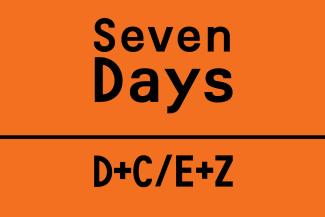In brief
News of the week
 D+C/E+Z
D+C/E+Z
Illicit financial flows hurt Africa
Due to tax evasion, capital flight, intra-corporate transfer pricing and corruption, Africa is losing more than $ 60 billion per year, according to the High-Level Panel on Illicit Financial Flows from Africa. This Panel published a comprehensive report on the matter on 1 February. It was established by the African Union and the UN Economic Commission for Africa in 2011.
The Panel states that illicit financial outflows from Africa increased from about $ 20 billion in 2001 to $ 60 billion in 2010. The results include reduced tax revenues, less savings and fewer investments in African economies. The authors state that addressing the matter is “ultimately a political issue”.
The report confirms that there is a relationship between dependency on extractive industries and the incidence of illicit financial flows. Fighting corruption is considered essential. Moreover, the Panel warns that African governments tend to grant tax incentives without doing proper cost-benefit analyses, so competition for foreign direct investment often results in a “race to the bottom”.
Link:
AU, ECA: Illicit financial flows.
http://www.uneca.org/sites/default/files/publications/iff_main_report_english.pdf
HRW wants AU to publish report on South Sudan
Human Rights Watch (RW), the international non-governmental organisation, has appealed to the African Union (AU) to publish a report on violence in South Sudan. The report was prepared by a commission of inquiry that was established last year. The AU gave it a mandate to document abuses and make recommendations on justice and reconciliation. The commission interviewed many South Sudanese victims and witnesses for its report.
It was supposed to deliver its report in the context of the AU summit in Addis Ababa in late January. However, the AU Peace and Security Council decided not to deal with the matter. According to HRW, this stance has “compromised” the AU’s commitment to justice for serious crimes.
At the summit, the conflict parties concluded a new agreement to end fighting in South Sudan by 5 March and to form a transitional government. AU policymakers said they did not want to undermine that deal by starting the debate on violent crimes. HRW, however, warns that many “contentious issues remain”. Violence has been rocking South Sudan since Riek Machar, the former vice president, fell out with President Salva Kiir in late 2013.
Source: HRW
Ebola vaccine tests begin in Liberia
Scientists hope to immunise up to 30,000 volunteers in Liberia in trials of two newly-developed vaccines against Ebola. The tests began last week. The volunteers include doctors and nurses who treat Ebola patients. The experimental vaccines appear to be safe for humans according to earlier studies and could reduce the infection risk by 60 %.
In the meantime, the government of Liberia postponed the re-opening of schools by two weeks. The schools were closed because of the Ebola crisis last year, and the government had previously said lessons would begin again on 2 February. It changed its mind, stating that two more weeks were needed to allow more parents to register children for school and to distribute more health equipment, such as thermometers, to schools. The government also announced that the school year would last until Christmas to make up for time lost during the epidemic.
Last week, the World Health Organization (WHO) reported that the number of new Ebola infections has went up again slightly, after having declined earlier. The WHO stated it was essential to control the epidemic before the rains set in in the spring.
Sources: Frontpage, rfi, dlf, BBC, Guardian
Ennahda to join Tunisian government
Habib Essid, who is set to become Tunisia’s next prime minister, has announced who will join his government. Members of the secular Nidaa Tounes Party will make up the majority of the new cabinet, but it will also include members of other parties. One minister and some deputy ministers will even be from the Islamist party Ennahda.
Nidaa Tounes and Ennahda are Tunisia’s two major political parties. The decision to form a government of national unity is controversial in both parties. Nidaa Tounes was initially formed in opposition to Ennahda and managed to unite the secular forces in parliamentary and presidential elections last year. In January, newly elected President Beji Caid Essebsi nominated Essid to become prime minister. Essebsi and Essid both served former dictator Zine Abdine Ben Ali in government and have been accused of wanting to role back the revolution. Nidaa Tounes includes former supporters of Ben Ali as well as secular opponents who were oppressed under his rule. Ben Ali’s regime did not tolerate Islamist organisations either. The new cabinet includes representatives of the ancient regime, its secular as well as Islamist opposition.
Sources: Welt, FR
Arab Spring activists get life sentences in Egypt
An Egyptian court has sentenced 230 secular activists to life in prison. The judge found them guilty of taking part in clashes between protesters and security forces during the country’s 2011 uprising. One of the convicted persons is Ahmed Douma who played a key role in the revolution that forced long-time President Hosni Mubarak to step down. He is already serving a three-year-sentence for breaking a draconian law regulating protests. Wednesday’s verdict is the heaviest sentence yet against the activists. A life sentence in Egypt is 25 years. The ruling can be appealed. On the fourth anniversary of the uprising on 25 January, at least 13 people were killed and dozens injured amid violent clashes between police and protesters who support ousted Islamist President Mohammed Morsi.
Sources: BBC, AP
These items were compiled by Hans Dembowski and Katja Dombrowski on the basis of international media coverage.

